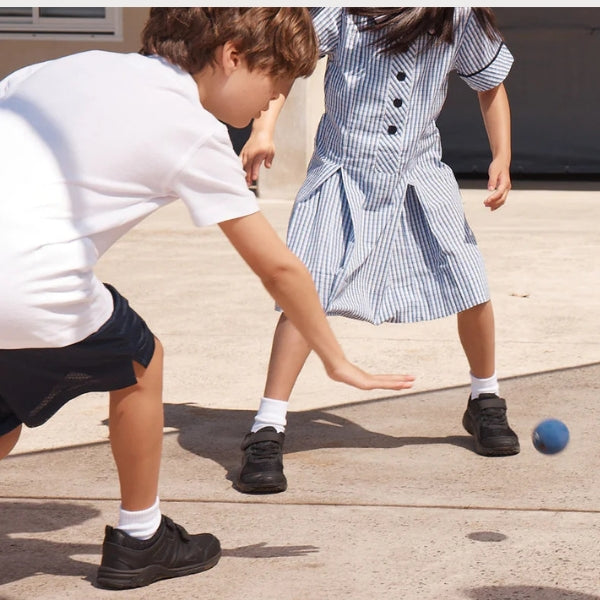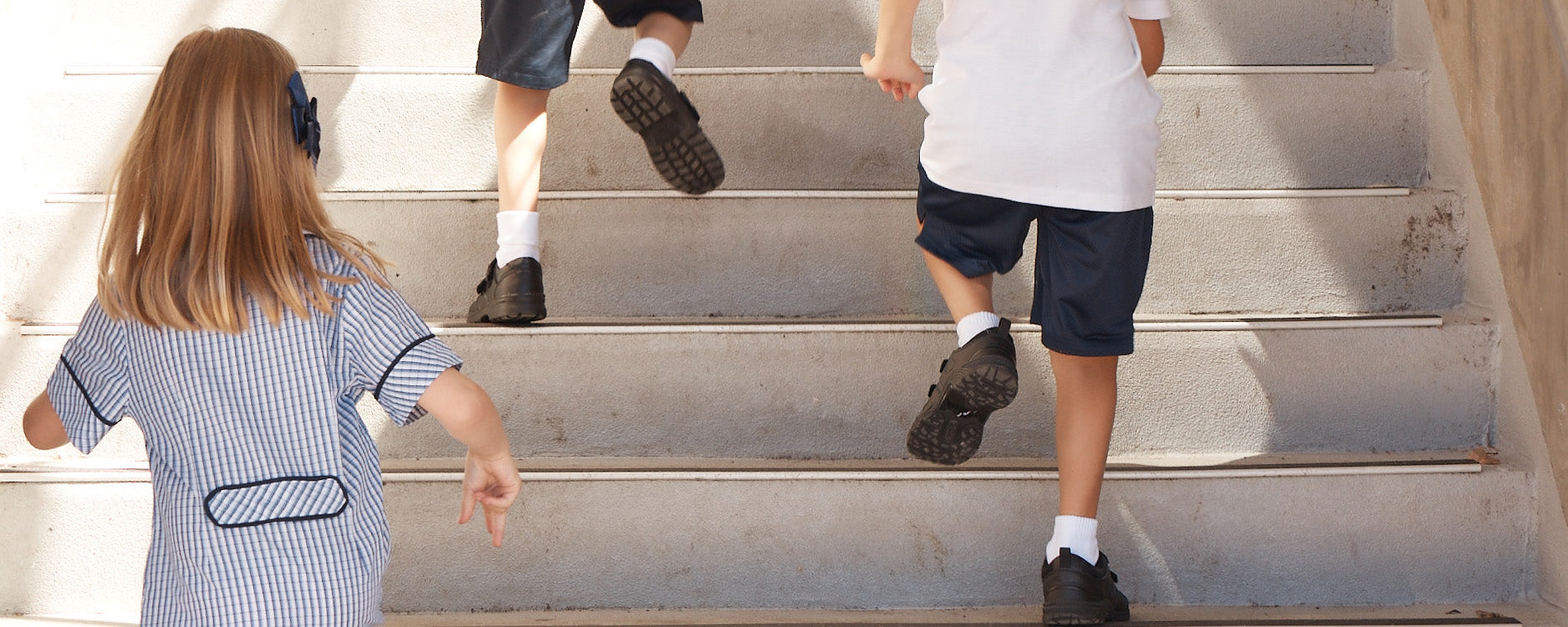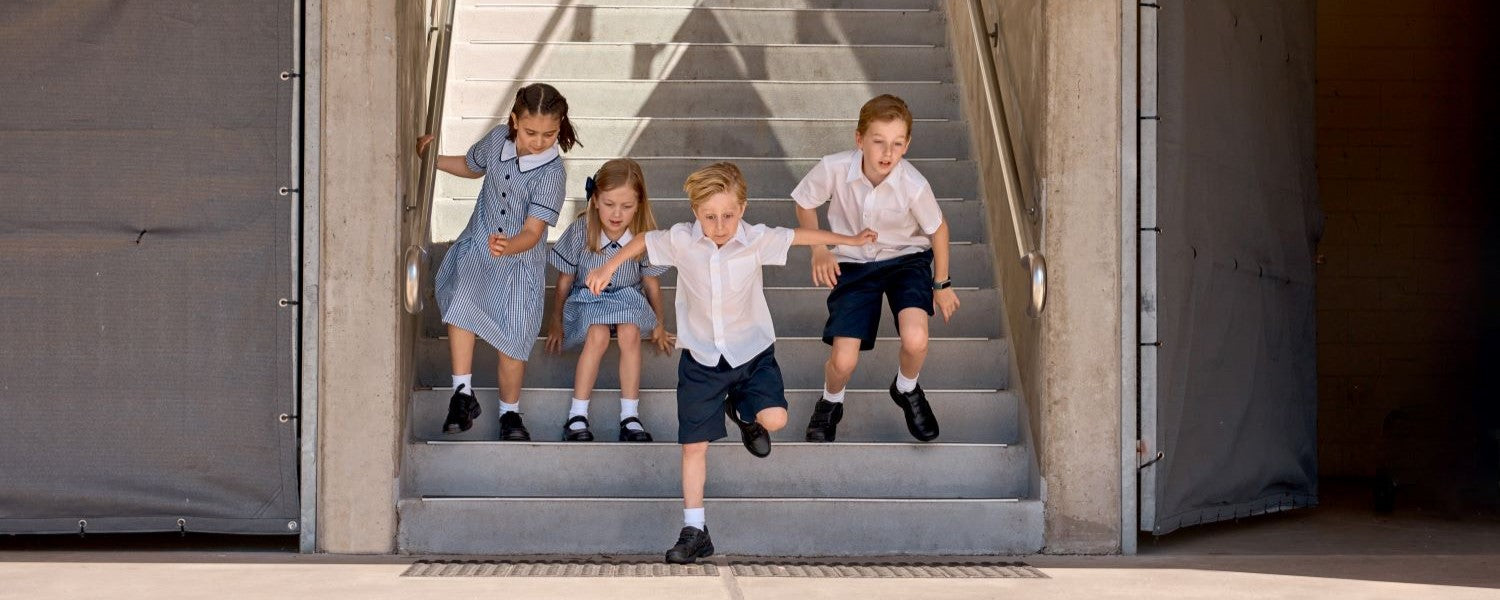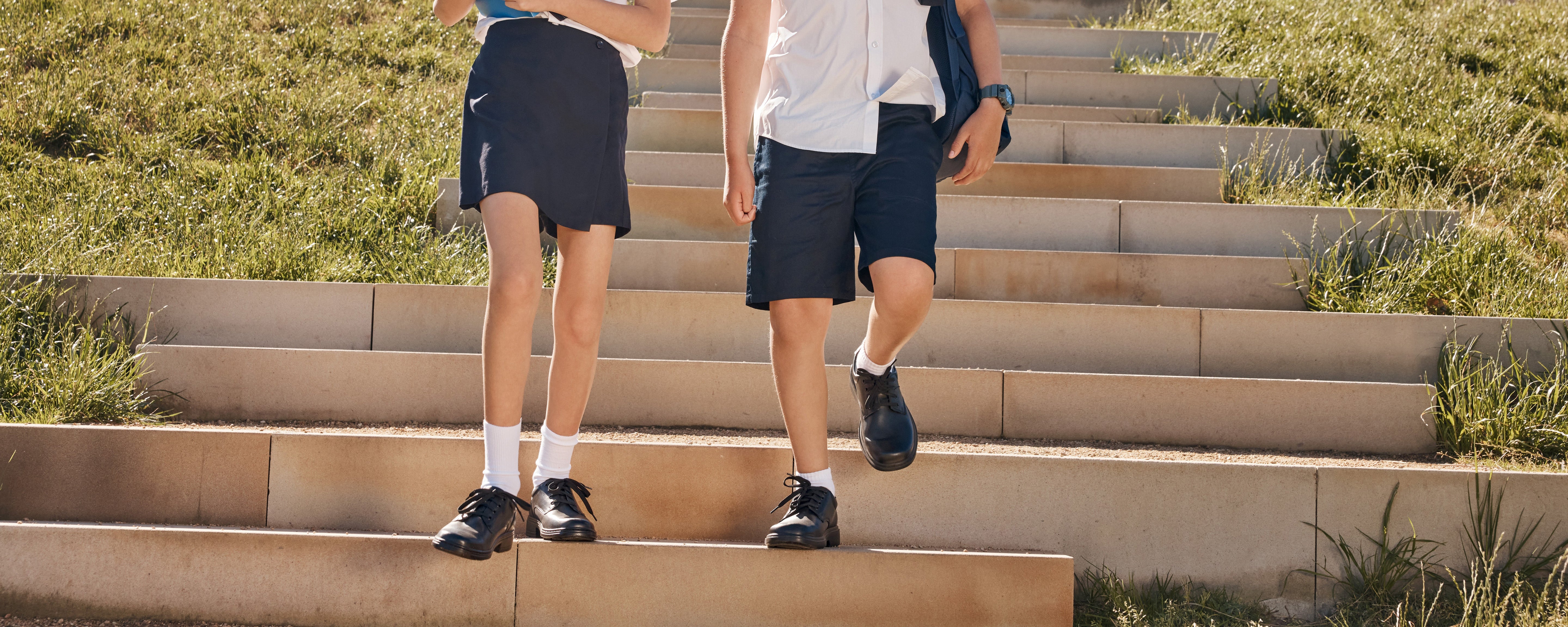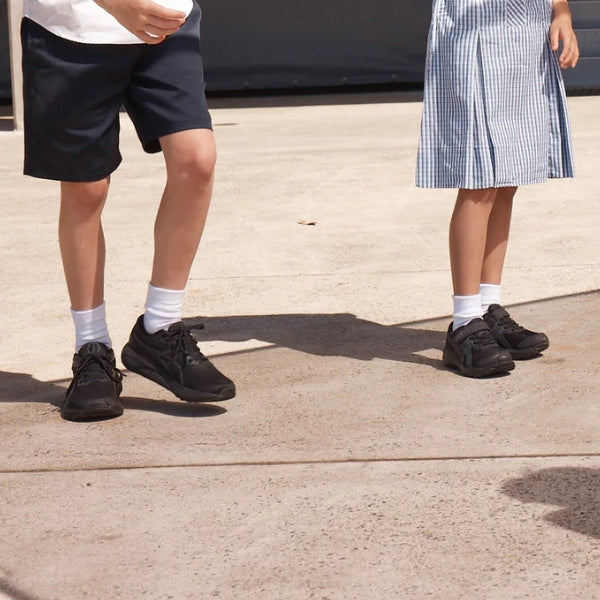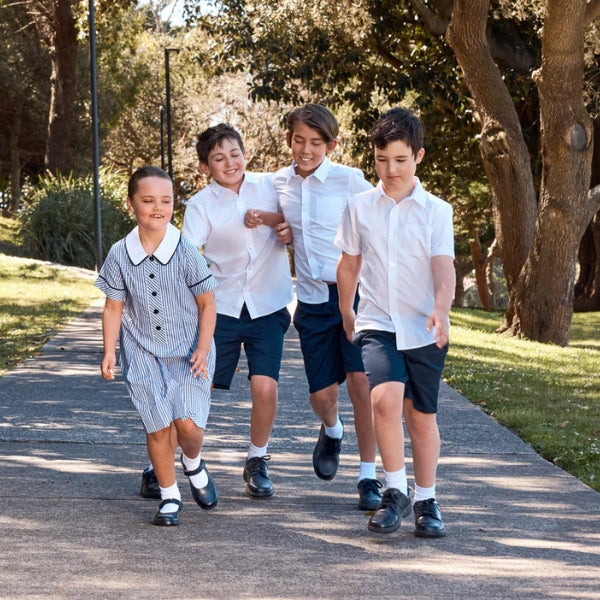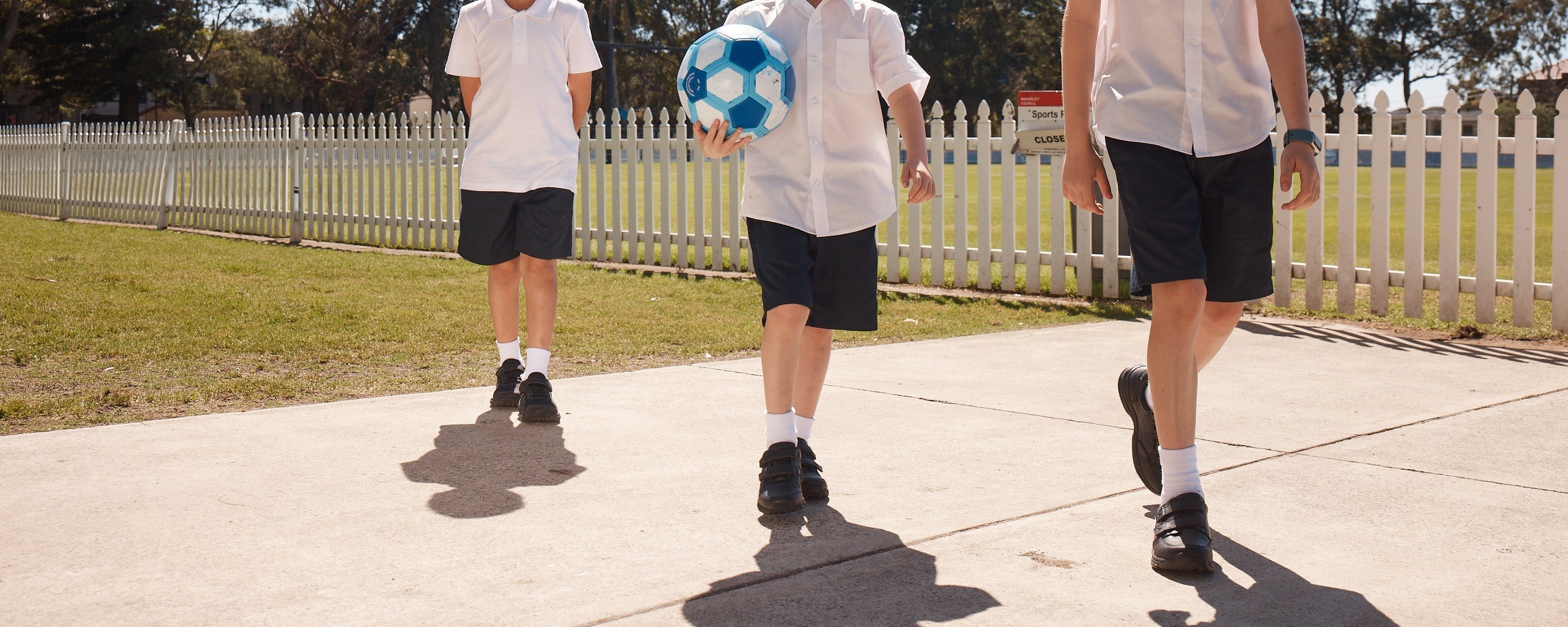
5 Tips for Starting BIG School: A Parenting Expert Shares
Starting prep, kindy or ‘big school’ is a significant change for little kids. There can be a huge mix of excitement and nerves for kids about to start - as well as their parents.
The nerves make sense. For parents, it’s a big step into our child being more independent, and it can be emotional seeing your child move forward into the next stage of their development. We might also worry about our child – will they fit in? Will they make friends? Will they find the toilets? What if they need help – will they feel confident enough to ask?
We sat down with Parenting expert and founder of Connected Parenting, Gen Muir. She shares some of the ways that we can better prepare our little ones as they make the big step into school.

For our kids it’s a time of much excitement and some apprehension. They really don’t know what to expect, making it a leap into the unknown. So, what’s the best way to prepare us and our kids for the beginning of their school journey?
In days gone by, the biggest consideration of readiness for school was a child showing interest in reading or being able to write their name. It is now widely accepted that the social and emotional skills needed for kids to navigate this transition is by far the bigger area that supports a smooth adjustment into primary school.
If you have a school starter, here are my top tips to assist with the social and emotional adjustment into school:
-
Practice the basics
So simple, it’s easy to overlook: can your child open their own lunch box and drink bottle? Can they take a jumper off unassisted? Or get a shoe back on if it comes off? These are the skills we tend to overlook when thinking about school readiness and it’s these seemingly little things that can turn an ordinary day into struggle-city for a little 5-year-old navigating kindy or prep. The more confident your child is with the basics, the more they can focus on the other aspects of adjusting to school.
Pro tip: The answer lies in practice. Serving lunch in your child’s lunch box in the weeks before school, assisting them to learn how to dress independently, and even working on their skills at opening a pack of ‘rice wheels’. This will mean that when your child is at school, having already navigated so much, they won’t feel lost when it comes to basic eating or self-care.

-
Let them play
As famous child psychologist Jean Piaget said, ‘Play is the work of children’. Or in the words of Fred Rogers, ‘Play is often talked about as if it were a relief from serious learning. But for children, play is serious learning.’
It might be tempting to get out the educational apps to prepare a child for seated learning but evidence shows that working on their gross and fine motor skills outdoors makes a much bigger impact on readiness to learn. Additionally, through a wide variety of outdoor and indoor play, kids can work on their ability to share, take turns and practice winning and losing. These are all essential skills for navigating the classroom and the playground.
The answer lies in play: playing games where kids get an opportunity to miss out, or lose, with the emotional support and safe base of their parents, gives little kids a chance to practice navigating these ups and downs, and result in a child who is more resilient when small disappointments happen at school.
-
Talk less (and listen more)
Much like preparing our little ones for other big transitions in life (like becoming a big brother or sister), sometimes we talk a bit too much and this can add pressure to our kids.
When we ask our kids over and over if they are excited, if they feel ready, or tell them stories about how much they will LOVE school and how much fun they will have, it can add pressure or set our children up for unrealistic expectations.
The answer lies in letting our child know we hear them: asking open questions and listening to their concerns. If your child expresses a fear about school, sometimes what they need is to be heard. As much as our instinct is to make it better or tell them everything will be fine, there can be such a relief in someone saying: ‘I hear that you are worried, that makes sense. Starting school makes lots of kids feel worried.’

-
Prepare yourself for the ups and downs of being a primary school parent
I don’t want to alarm you but the adjustment into school for some kids takes a while. Many kids struggle with the transition for weeks or months. It’s a lot to learn all at once and while they may be going brilliantly by day, they can be very tired and emotional by the time you pick them up simply because there is just so much to learn.
It’s all about patience. For many children in the first year of primary school (and more so for boys) the adjustment to school, and all it entails, really takes about a year. For one year they are the smallest fish in a big pond. They are learning the rules, making friends, navigating the playground, remembering to sit still and, on top of this, learning to read and write. It’s a LOT. And for most kids it will show. You are not getting it wrong, and neither are they … it just takes time.
In 12 months, when your child is moving into Year 1, they will look so much bigger in that once oversized uniform, the once brand-new shiny shoes will be a little more scuffed and well worn than they were on day one, and your child will be more confident as they get a handle on school and everything it entails.
Before you know it, your child will have finished their first year of school and will be heading into year one. You’ll spot the teeny tiny new starters and wonder how that year went so darn fast and how did your baby get so big? If you need expert advice on finding the right first school shoes click here. Otherwise, head into your nearest Shoes & Sox for a fit check.


















